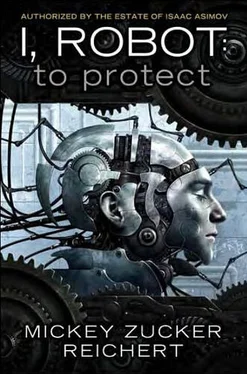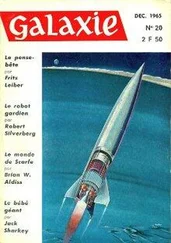“Nose guard,” Diesel said. “And center on offense. Right smack dab in the middle of the line.”
Susan looked him over. Though notably short for his age, he was built like a tank. “So, I bet you love the Giants.”
Diesel wrinkled his nose. “I like college. Longhorns.”
“Texas?” Susan asked.
Diesel looked at her as if she had gone mad. “No, the Pennsylvania Longhorns.”
“Pennsylvania?” Susan realized he was teasing her. “Funny.” Of course Texas, you moron . “What do you like about them?”
“For one thing, they’re good. Ten and oh last season. For another, they send a lot of guys to the pros. Especially quarterbacks.”
Susan made a mental note to study up on football, especially the Longhorns. “You think you’re calm enough to go back out there?”
Diesel sighed. “And apologize. Yeah, yeah. I know the drill.”
“Good, because I have to get back to rounds.” Susan looked around the room at the blood-splashed, padded walls. “And someone is going to have to clean up in here.”
Diesel followed Susan’s gaze as if noticing the mess for the first time. Only then, he studied himself. He looked as if he had gone ten rounds in an ultimate fighting ring.
Susan rose, walked to the door, and knocked politely.
It swung open immediately.
“We’re ready to come out,” she announced to the waiting nurse, who gave her a gaze that spoke volumes. Susan had a feeling she was about to face a punishment worse than Diesel’s own.
To her surprise, she did not care.
When rounds restarted, they naturally focused on Diesel. More confident after their conversation, Susan started again. “Dallas ‘Diesel’ Moore is a ten-year-old black male who has been diagnosed with ADHD, oppositional defiant disorder, severe depression, obsessive-compulsive tendencies, and morbid obesity.” As Susan glanced around the office, she could see the other residents looked more relaxed than they previously did. The hour off had given them more time to meet their patients and review the charts, while she had entombed herself with Diesel. Stony had changed into the blue corridor scrubs that served two purposes. First, they announced their lack of sterility, that the wearer was not headed for the operating room. Second, their bright color was a reminder not to wear them outside of the hospital.
Dr. Bainbridge studied Susan with a bemused expression. “You’re about to tell us you don’t agree with those diagnoses, aren’t you, Susan?” He already had her pegged from her presentation of Starling Woodruff. Worse, he was right.
“Well, actually, sir . . .” Susan paused, uncertain how to continue. She had not expected to get to this point so quickly and had not fully organized her thoughts on the matter. “I think it’s possible he has an undiagnosed syndrome, yes.”
Stony leaned toward her. “What are you thinking?” Less jaded than Bainbridge, he actually seemed eager to hear her theories.
“Well . . .” Susan tried to work through her thoughts as she presented them. A well-reasoned argument would speak volumes over an educated guess. “Obesity has three main causes: familial, psychiatric, and physiological. The first one is the most common, and also the most treatable. The first and second types cover some ninety-eight percent of all cases of obesity.”
“You think Diesel has the third,” Bainbridge said predictably.
Susan did not wish to couch her ideas as speculation or intuition. Those would not fly in a scientific institution like Manhattan Hasbro. “I think there’s a reasonable amount of evidence to come to that conclusion.”
“Evidence.” Bainbridge made a “come here” motion Susan took to mean he wanted more information, not for her to stand beside him.
“Neither his parents nor his siblings are obese. While there is some history of a maternal uncle who was, that’s not strong evidence for familial obesity.” Susan supposed she had not needed to present those details. That Diesel resided in the PIPU proved his previous physicians believed in a psychiatric basis for his problems, not familial or physiological. “Diesel hasn’t responded to any of the standard antiobesity drugs.” A plethora of those had emerged in the early part of the current decade, when medical research dollars had been restored after nearly two decades of attempts to balance the national and state budgets by channeling that money into medical care for the indigent. The antiobesity drugs worked for anyone with even a modicum of self-control and the desire to attain a healthy weight.
Bainbridge made a more severe gesture, as if to get across to Susan they had a limited amount of time.
“Diesel was underweight until about age two and a half, when he developed hyperphagia and put on enormous amounts of weight quite suddenly. That’s remarkably early for nearly all the psychiatric causes. He packed on the weight despite having ADHD, with an emphasis on the hyperactivity part in his case. He started walking very late. Intelligence testing reveals an enormous backward split between performance and verbal aptitude. Most children with learning problems do worse on the verbal parts, but Diesel has a profound vocabulary and the ability to use it. He has much more trouble with dexterity: drawing, writing, shoe tying. Also, he’s short for both his age and his family history, with surprisingly long arms.”
Monk Peterson blurted out, “Prader-Willi syndrome.”
It was the obvious diagnosis. Though rare, it was still the most common obesity syndrome. Even at the turn of the twenty-first century, most children with Prader-Willi died before they reached adulthood. Driven to eat, they would choke to death, poison themselves with spoiled or uncooked foods, or rupture their stomachs. Those who survived all of those things frequently still died young of complications of obesity.
In the last twenty-five years, doctors discovered treating these children with human growth hormone, consistently locking up all food storage areas, and training the families and children from infancy could help delay the development of the deadly hyperphagia and even prevent the obesity in many cases.
“Is he intellectually disabled?” Clayton asked. “All children with Prader-Willi syndrome are.”
Behind Bainbridge’s back, Monk Peterson poked furiously at his Vox. “Not all. Ten to twenty percent have normal IQs, with severe learning disabilities.”
Susan envied him the ability to use the Vox. With Bainbridge’s attention on her, she did not have the same luxury. “And a ten-point split between verbal and performance portions of the IQ test defines nonverbal learning disability. Diesel has a thirty-five point split. Severe.”
Susan could see nurses whispering behind the other residents and knew they had something to say but did not have the temerity to interrupt an attending’s rounds. She addressed them directly. “Has Diesel been tested?”
One of the nurses answered quickly. “Negative.”
Monk punched more buttons. “Methylation or FISH?”
Everyone turned Monk a blank stare, and he casually hid his wrist behind his back.
“Methylation testing is a lot more accurate.”
“It was the more accurate one,” the nurse inserted. “The one that definitely ruled out the syndrome.”
“Methylation, then,” Monk asserted. “It’s reportedly nearly ninety-six percent accurate.”
That put Susan off a bit, though not entirely. She still believed she had read Diesel correctly. “There are other obesity syndromes and states. Prader-Willi is not the only one.”
Directly behind Bainbridge, Monk still worked his Vox. “There’s post-craniotomy syndrome, also known as secondary or acquired Prader-Willi syndrome. It occurs after removal of a craniopharyngioma from the brain.”
Читать дальше












